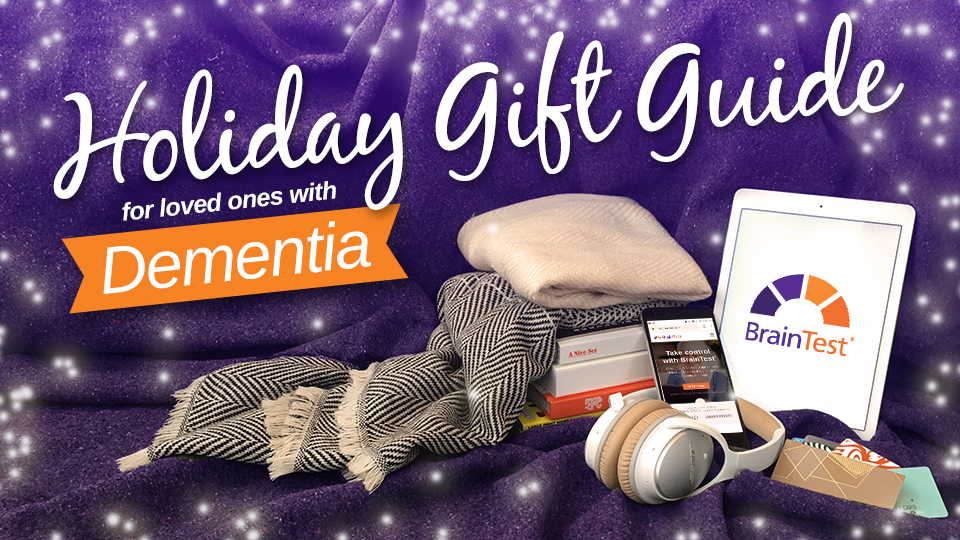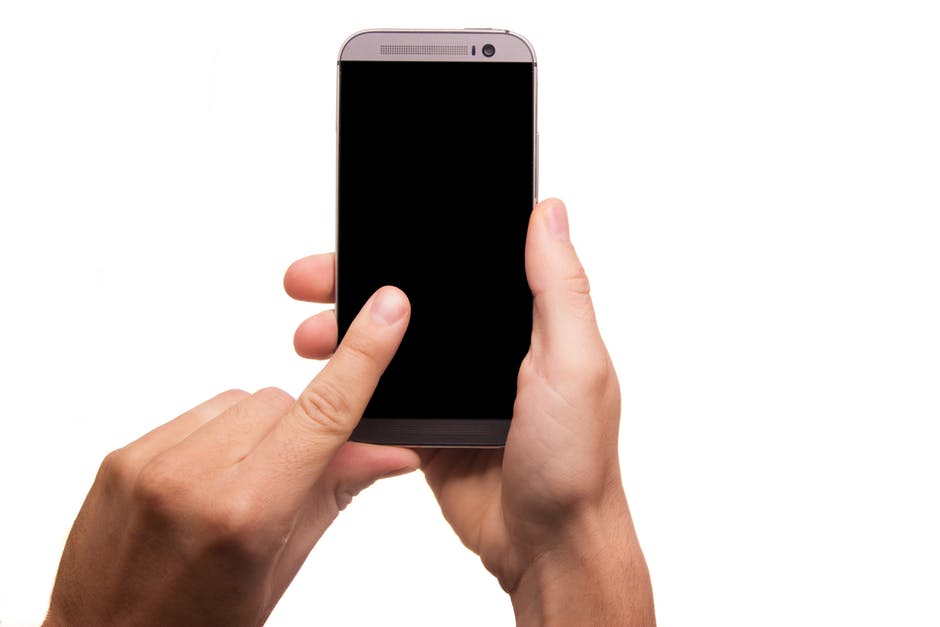Holiday Gift Guide for Loved Ones with Dementia

It is the time of year for gift giving, family gatherings, and good cheer. Unfortunately, dementia never takes a holiday. While it might be tempting to shy away from potentially uncomfortable topics (like health issues) during the season, we must be careful not to ignore the reality that people in our lives may be at risk for developing dementia or suffering from it already.
A better way to approach dementia during the holidays is to include it in our gift giving considerations. If you have a loved one, friend, or even just an acquaintance with dementia, then there are ways to help make their lives more comfortable with the right gift. Similarly, there are good gift options if you are concerned that someone is at risk of developing the condition.
Prevention-Based Gifts
There are no guaranteed ways to prevent Alzheimer’s disease or other forms of dementia. However, many organizations are regularly engaged in research toward this goal. If prevention is your focus, then you could always donate to one of these groups during the holiday season. Some example organizations include:
- Alzheimer’s Association
- Dementia Society of America
- Alzheimer’s Society Canada
- The Alzheimer’s Foundation of America
- Alzheimer’s Research UK
You could simply consider it as a gift from yourself toward the cause, or you could donate in the name of someone else as a present to them.
Early at-home cognitive screening

Early detection is the next best thing to prevention. It provides the most time to be properly evaluated, begin treatment, make plans, and live life to the fullest. As it stands, the best way to detect Alzheimer’s disease in its earliest form is with a cognitive assessment, such as the Self-Administered Gerocognitive Exam (SAGE).
BrainTest® is based on the SAGE and provides additional resources such as scoring, a personalized video analysis from a board-certified doctor, as well as a chart to help monitor your results over time. It makes a great gift for loved ones whose cognitive health you may be worried about, and all it takes is simply downloading an app.
Gifts for Loved Ones With Early-Stage Dementia
Books

Image via Pexels
Knowledge is power, so why not gift it to a loved one over the holidays? Someone in the early stages of dementia can benefit from reading a variety of subjects that relate to their condition, like scientific texts, touching stories, or emotional support materials. The appropriateness of a specific title will depend largely on their personal preferences and how they are currently coping with the diagnosis, so be sure to take these things into account when considering a book as a gift for a loved one or acquaintance with dementia.
Smartphone

Image via Pexels
Many older adults do not have smartphones, including those with dementia. It may seem counterintuitive to give a somewhat complicated device to someone who may be experiencing abnormal cognitive decline, but research shows that people with dementia can still learn new skills into the middle stages of the disorder.
Smartphones can be incredibly helpful for someone with dementia. First and foremost, they provide safety by being a portable means of communication (do you remember when that was the only thing a phone did?). There are also many applications available for smartphones that can be useful for someone with dementia, like note-taking programs and accessibility apps (for vision, hearing, and movement impairments should they occur). Smartphones are also just plain fun, which is never a bad quality in a holiday gift.
Vacations

image via Pixabay
If you are looking for a high-end gift for a loved one with early-stage dementia, then a vacation package may be the ticket (pun intended). As you may imagine, learning to live with a dementia diagnosis can be a stressful experience. Stress can cause its own host of health problems, so it is important to reduce it whenever possible. A relaxing vacation in a dream location could provide ample opportunity for reflection, acceptance, and simply enjoying life.
Gifts for Loved Ones With Mid-Stage Dementia
Movement problems are common in the middle stages of dementia. There are a wide variety of items available that can help people deal with these changes. The most obvious choices are mobility products like walkers, wheelchairs, canes, and scooters. While these products can undoubtedly be useful, they only address one aspect of movement.
Dementia may or may not cause walking problems, so it is good to know what a person needs before you select a gift. For example, if your loved one is having problems related to hand movements, then a more appropriate gift choice would be one of the many adaptive devices that could assist them with daily tasks, like a self-balancing spoon or leak-proof cup.
Gift Cards

Image via Pixabay
In the middle stages of dementia, it may become more difficult to interact with people socially. Gift cards can serve several distinct purposes in this case:
- If they cannot go out because of symptoms, then the cards can usually be used online.
- If they are physically capable of going out but are hesitant because of the emotional impact of having dementia, then getting a gift card may give them the motivation they need to move past their doubts.
- Similarly to the above point, if you have a loved one who is able to be socially active but hesitant due to having dementia, then a gift card for a specific activity that they enjoy might be a good choice.
The value of home entertainment options will rise as dementia symptoms worsen. You will need to consider the exact nature of your loved one’s impairments to ensure that you select the appropriate devices. For example, a television or visual media may not be of much use to someone with severe vision problems, but they may enjoy a nice sound system and audio-only versions of their favorite shows. Assistive technology is also a good choice, like remotes with large buttons, or special headphones for the hearing impaired.
Gifts for Loved Ones With Late-Stage Dementia
Comfort Items

Image via Pixabay
A loved one in the later stages of dementia will likely be immobile to a significant degree. Their comfort is one of the most important considerations at this point, both because it will be pleasant for them and because the right products can prevent injuries in the form of skin breakdown. Items like pajamas, robes, pillows, and blankets are good choices, but it is best to check with their care provider first, to make sure that nothing you intend to bring them poses an unseen threat (due to allergies, for example).
Assuming they do not have a severe hearing impairment, music can be enjoyable for someone with dementia well into the latest stages of the condition. It does not require interaction, so they can still listen to music when immobilized, and familiar songs from their youth can help ease some of the anxiety and confusion that they may be experiencing. However, this may not be the best time to introduce them to styles that they are not used to, especially if it is a particularly stimulating genre (like techno or metal).
Caregiver Considerations

Image Via Pexels
Sometimes, the most meaningful gift that you can give to a loved one with late-stage dementia is to help their caregiver, specifically if they are being cared for at home by a family member or friend. You could provide help in a literal sense by offering to step in for them from time to time. Caregivers are at a high risk of burnout because they often do not get any time away from this role. A similar gesture would be to offer to pay for home care services. A happy and healthy caregiver will be able to provide the best care for your loved one.
The Best Gift of All
The holidays can be a time of isolation and loneliness for someone with dementia. People with dementia may feel hesitant to seek out social contact or may be restricted in their ability to travel because of their symptoms. Taking the time to visit loved ones or acquaintances with dementia can brighten their holiday season substantially.
From early screening tools like the BrainTest® app to comforting music and clothing for people with late-stage symptoms, there is no lack of good gift choices for someone who is experiencing any stage of dementia. So, if you have a loved one, friend, or acquaintance with dementia, be sure to keep this list in mind when planning their holiday gifts.
From everyone here at BrainTest, we wish you and your loved ones a happy and healthy holiday season!


Comments (1)
My husband is my career. He works hard at it despite a very busy life.
I am very grateful to him!